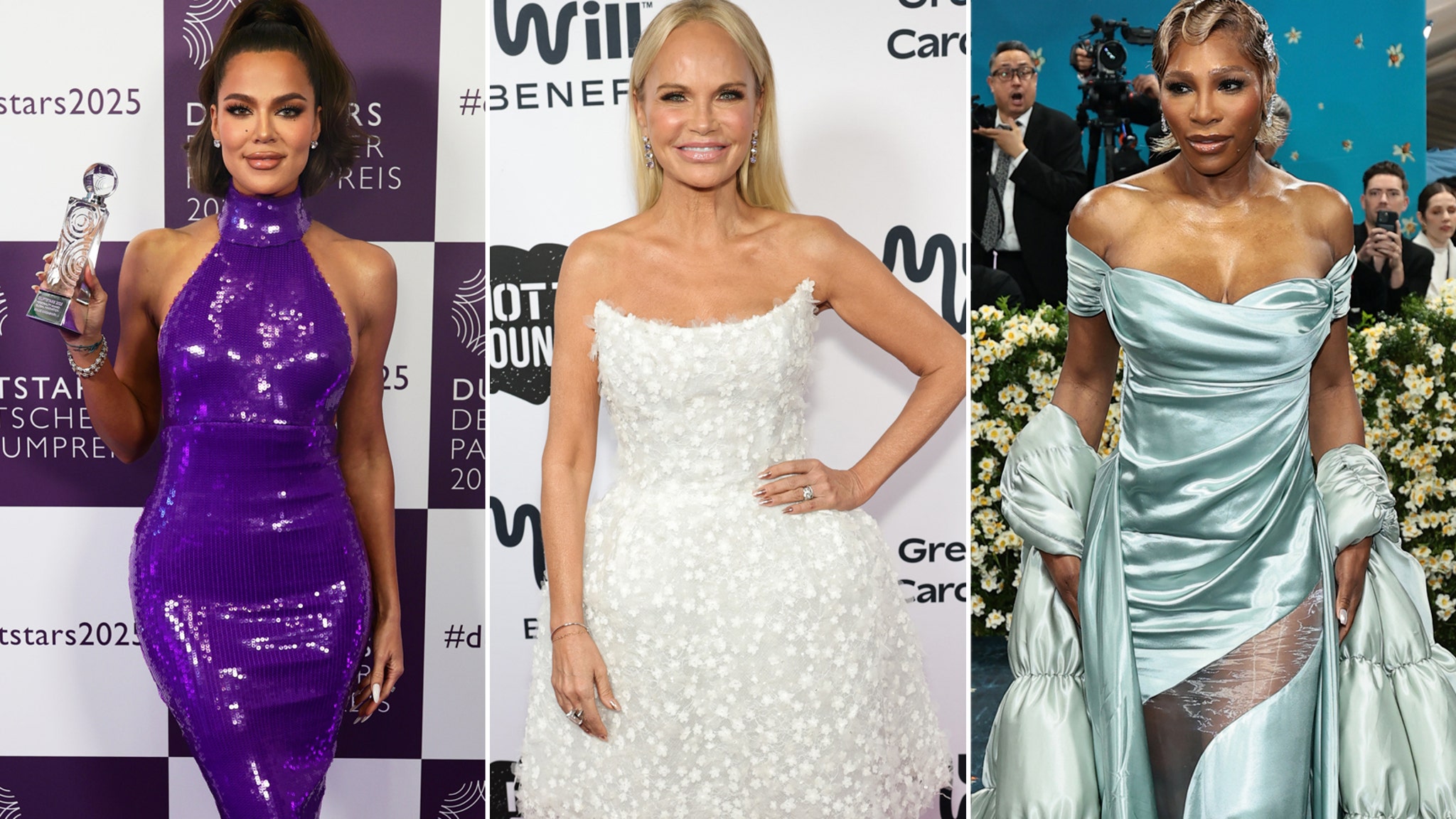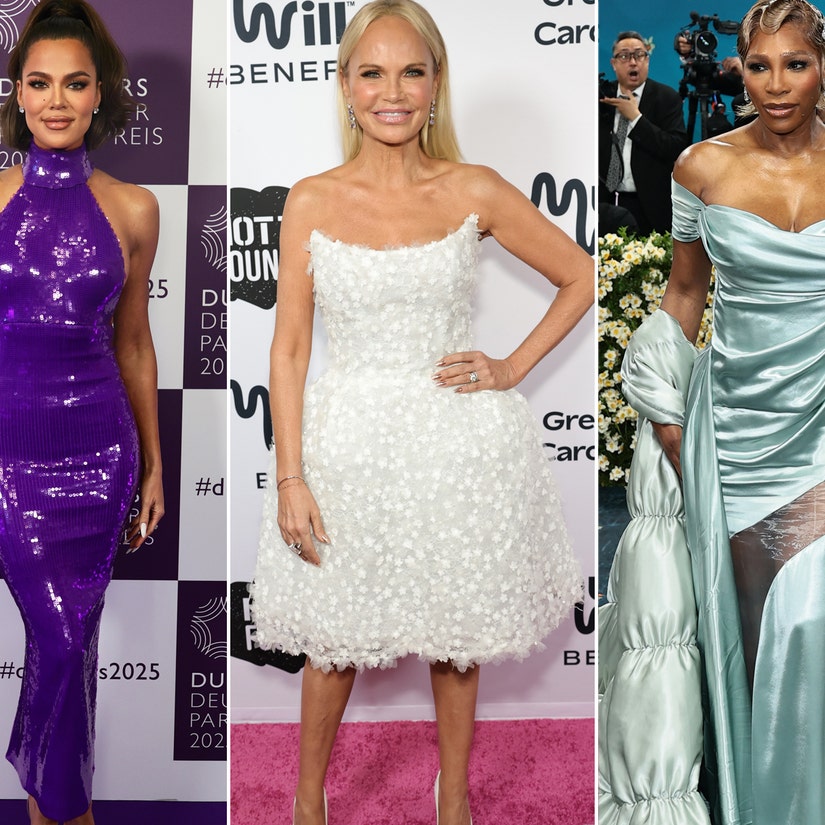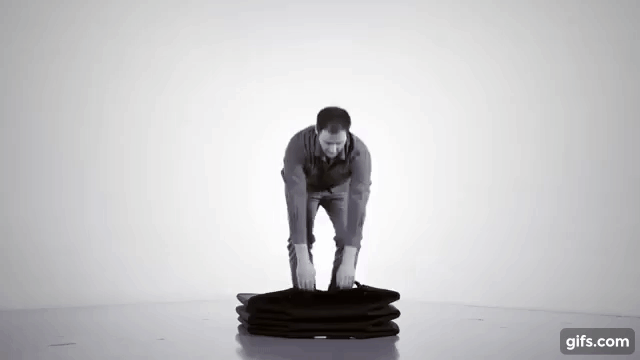11 Celebrities Who Deal With Excruciating Migraines


"The absence of migraines felt like an opioid. That's how wild it was."
Millions of Americans deal with migraines -- and it’s frequently written off as “just a headache.” But for those that suffer from the chronic condition, it entails debilitating attacks that can include nausea, numbness and visual disturbances as well as sensitivity to light and noise. Often triggered by factors like stress and lack of sleep, migraines can’t be cured with just one treatment. They typically require a combination of lifestyle changes and medication.
Many celebrities say they’ve dealt with migraines for the majority of their lives -- and hope by opening up about the condition, they can raise awareness and bring hope to those that also suffer.
Read on to hear what these stars said about their migraines…
Khloé Kardashian
Khloé Kardashian began experiencing migraines that left her “incapacitated in bed” when she was just a preteen. At the time, Khloé says she didn’t truly understand what was going on and people around her didn’t believe that it was anything more than a typical headache. It would be years before she was able to seek help when a family friend, who also suffered from migraines, encouraged her to see a neurologist.
“I vividly remember how I felt, but mainly I remember how everyone told me that I wasn’t feeling what I felt. People would always say, ‘Oh, it’s just a headache,’” she told Prevention. “That’s the stigma with migraines, that it’s just a headache. And being 12 years old, and at that time no one in my family experienced migraines, I was embarrassed to say when I was suffering from one.”
Now, Khloé’s migraines are less frequent and she knows how to better manage her symptoms. She’s sure to keep physically active and closely monitors her diet. She’s also a spokesperson for Nurtec ODT, a migraine medication.
Kristin Chenoweth
Kristin Chenoweth remembers exactly where she was when she had her first migraine. She was just 25-years-old and rehearsing for a show in New York. The room, filled with fluorescent lights, caused her to begin to experience “kaleidoscope eyes” followed by nausea and “a pounding headache.” She was diagnosed four months later and although migraines have caused her “to lose some time” in her life, she now knows how to better manage them.
“[Doctors] told me to avoid sugar and caffeine,” she said at the Migraine World Summit in 2019. “The past two years, I really have cut way, way back in that department and I have noticed a difference. The dragon that I keep chasing is sleep. I’m always in a different time zone or on a plane. None of these things are conducive to a person who has a migraine. That’s been my biggest challenge, sleep.”
She continued, “Everybody has their own belief, and I encourage and want that. I do take pause and I say, ‘Dear God, help me get through this.’”
Serena Williams
Serena Williams has struggled with “debilitating, throbbing pain” from periodic migraines since she was in her 20s. For years, she was forced to play through the pain since others couldn’t understand the invisible condition. While she was able to manage it for many years, things came to a head in 2020 when they became almost daily occurrences.
“It’s all incredibly stressful,” she told People of her migraines during the early days of the pandemic. “I was dealing with a lot of stress and unknown factors and things that I wasn’t used to, and so I think that was contributing to my migraine attacks and making them more frequent.”
Serena was finally able to seek treatment and now uses Ubrelvy, a drug that can relieve pain and symptoms during a migraine attack. It’s been such a life-changer for her that she’s now a spokesperson for the pharmaceutical company.
Lisa Kudrow
Lisa Kudrow has had a long history with migraines, a condition she inherited from her father. As a child, she and her siblings were plagued by migraine attacks and she says “a day of excitement and eating would always end in a horrible headache.” Lisa’s father, Dr. Lee Kudrow, also suffered from migraines and eventually opened the California Medical Clinic for Headache to help others going through the same thing.
Thankfully, Lisa’s migraines got more infrequent as she got older and are no longer a major issue for her.
Whitney Cummings
It took Whitney Cummings almost her entire life to get her migraines under control. Until she was in her late 30s, she had simply accepted her frequent migraine attacks as a part of life. But after speaking with a neurologist, they were able to identify that her anxiety over getting migraines was actually provoking them. The revelation was a “game changer” and once she began taking medication to address that anxiety, her attacks subsided.
“I remember being like, do people just move through the world without a throbbing head?” she told People. “The absence of migraines felt like an opioid. That’s how wild it was.”
Now if she senses a migraine coming on, she’s ready with a caffeine source, cooling menthol gel and two drugs that address the pain.
Whitney Port
Whitney Port admits she’s been getting migraines for as long as she can remember. Through the years, they’ve gotten increasingly worse, which she attributes to more stressful things entering her life as she’s gotten older. Reflecting on her experience, Whitney says they often occur in the morning, taking away valuable time with her son -- but she has tried her best to get them under control with coping mechanisms. For Whitney, she says Excedrin Migraine has been essential to dealing with the pain and is a “must have” in her life.
Jessie James Decker
Jessie James Decker has suffered from severe chronic headaches since she was a teenager. She now experiences two or three migraines a month and admits that it can really get in the way of life. While she has coping mechanisms, like essential oils, neck stretches and a hot bath, she’s sometimes not able to take care of herself fully on the road. Back in 2019, she had a meet and greet with fans and then a performance so she wasn’t able to stop her migraine in its tracks. She ended up having to stop the concert to take medication.
“It was horrible. I had to take it onstage. I had one of my band members perform a song while I tried to pull it together,” she recalled to People. “Then I went back on and I played through it. It was pretty horrid, but there’s times like that, where it just comes on and there's nothing I can do.”
She later added, “[My doctor] said that there are only 4 percent of people in the world that get the level of migraines that I get. She said that there was nothing I could really do except physical therapy.”
Whoopi Goldberg
Whoopi Goldberg experienced migraines for 40 years, admitting that she used to have to “plow through” while working despite the incredible pain. It wasn’t until she spoke to Khloé Kardashian backstage at The View that she learned a medication like Nurtec ODT could work. The interaction was a “game-changer” and she’s finally been able to find relief.
“[My doctor] basically said, ‘Listen, we can try this, because God knows you’ve put a lot of things in your mouth trying to make your head feel better. So sure.’ And about a month later, I started to get it,” Whoopi told Migraine Again. “It changed a whole bunch of things for me. It changed the game.”
Aly Raisman
Aly Raisman didn’t realize for many years that she was suffering from migraines. Since she always wore such a tight ponytail while training for gymnastics, Aly says she thought the pain and sensitivity she experienced was a hair headache -- not a symptom of a migraine.
“For years I’ve been struggling with nausea, fatigue, light sensitivity and neck pain. When I was finally diagnosed, it was validating,” she told People. “I didn’t know why I was feeling that way for so long. It’s frustrating not to have the answers. Knowledge is power, and being able to advocate for ourselves, being able to find a neurologist to listen to me -- I’m very grateful for that.”
Danica Patrick
Beginning in 2015, Danica Patrick began suffering migraine attacks following intense races. To help her through the pain, she turned to Excedrin and eventually became a spokesperson for the brand in the hopes of helping others going through the same thing.
“My series of triggers seem to be after a race on Sunday nights through Tuesday, so they’re kind of about a 48-hour window. They’re not necessarily every weekend, but when they come on, they’re awful,” she told People. “There’s plenty of Tuesday mornings when I get up and I feel awful, I feel nauseous and I’m on the couch all day. It’s a good opportunity to use my experience to help people understand how bad they are.”
Marcia Cross
Marcia Cross experienced her first migraine when she was just 14-years-old and thought she may have been having a stroke. Since she was at school, she headed to the nurse’s office but could barely remember her home phone number to call her parents. As a teenager, she says she spent much of her time lying in her bedroom with the lights dimmed, hoping the excruciating pain in her head would subside.
Through the years, Marcia has learned her migraine triggers like stress, lack of sleep, her menstrual cycle, and specific foods. She also figured out a way to cope: a combination of stress management, dietary changes, and medication to stop migraines when she feels them coming on.
“I still get migraines from time to time,” she told Brain&Life. “But I take my medication as soon as I feel a headache coming on and I’m able to manage them much better. I’m not afraid of them anymore. I feel I have a handle on it.”
















